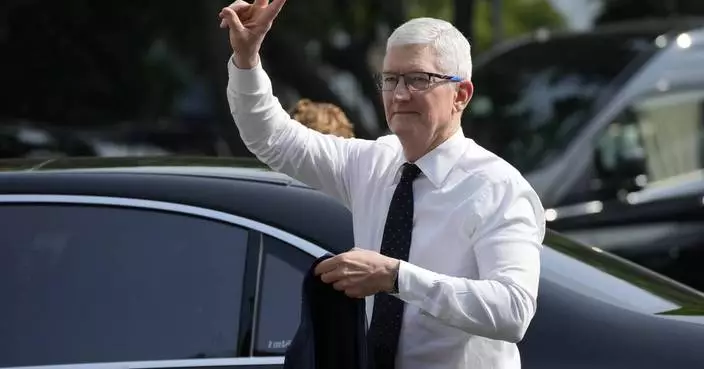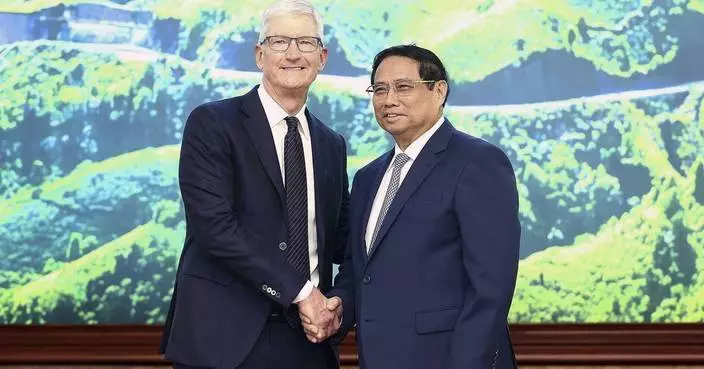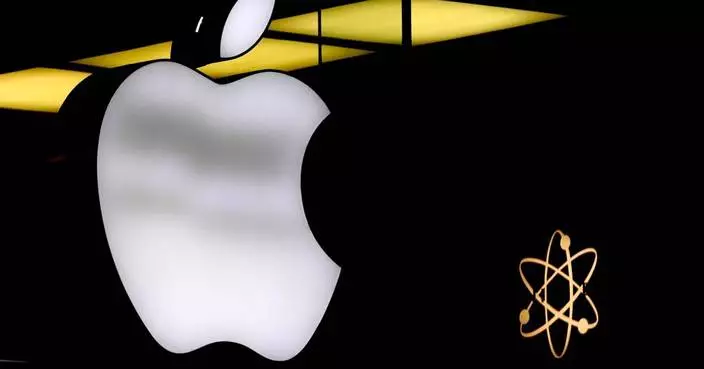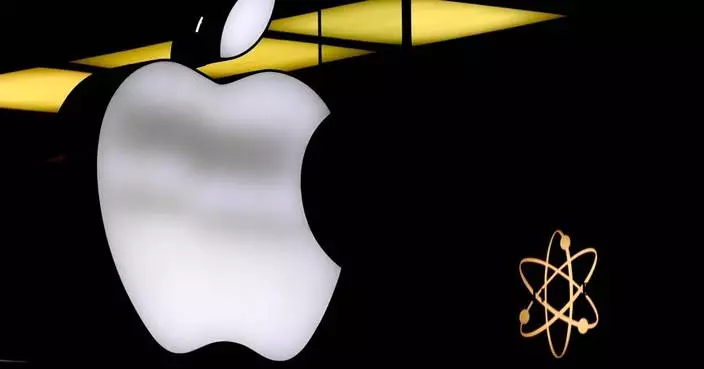Apple is expected to sell its fanciest iPhone yet for $1,000, crossing into a new financial frontier that will test how much consumers are willing to pay for a device that's become an indispensable part of modern life.
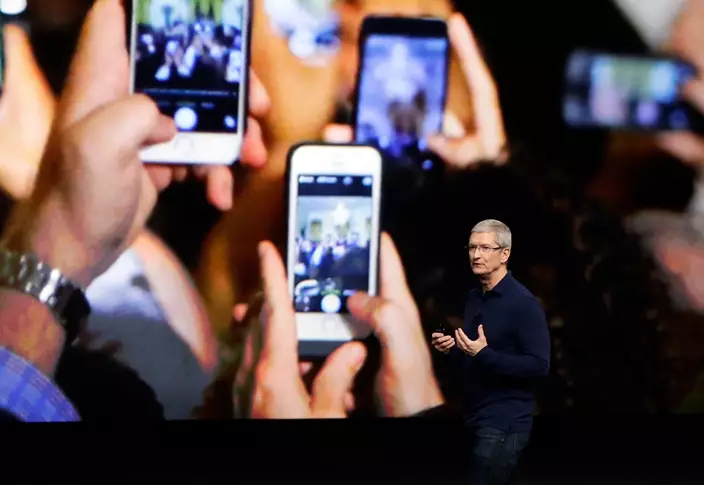
In this Wednesday, Sept. 7, 2016, file photo, Apple CEO Tim Cook announces the new iPhone 7 during an event to announce new products, in San Francisco. The unveiling of the dramatically redesigned iPhone will likely be the marquee moment Tuesday, Sept. Sept. 12 when Apple hosts its first event at its new Cupertino, Calif., headquarters. (AP Photo/Marcio Jose Sanchez, File)
The unveiling of a dramatically redesigned iPhone will likely be the marquee moment Tuesday when Apple hosts its first product event at its new spaceship-like headquarters in Cupertino, California. True to its secretive ways, Apple won't confirm that it will be introducing a new iPhone, though a financial forecast issued last month telegraphed something significant is in the pipeline.
In addition to several new features, a souped-up "anniversary" iPhone — coming a decade after Apple's late co-founder Steve Jobs unveiled the first version — could also debut at an attention-getting $999 price tag, twice what the original iPhone cost. It would set a new price threshold for any smartphone intended to appeal to a mass market.
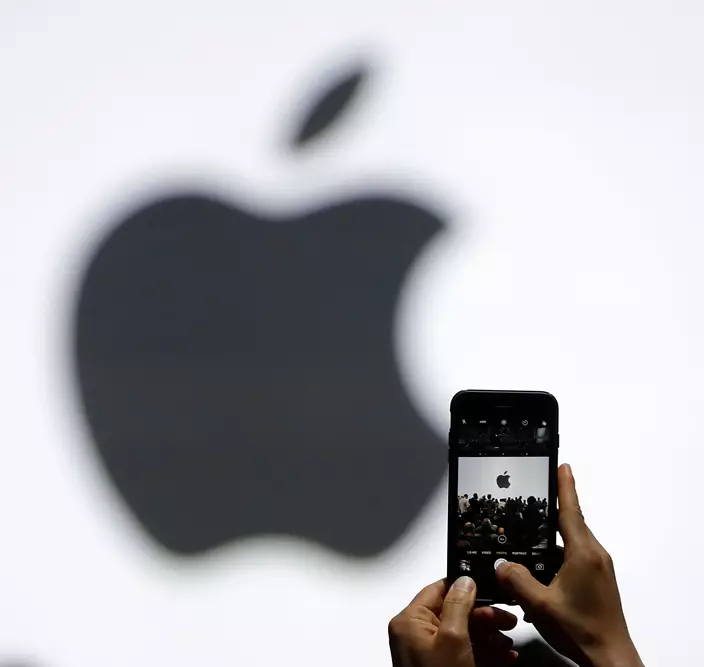
In this Monday, June 5, 2017, file photo, a person takes a photo of an Apple logo before an announcement of new products at the Apple Worldwide Developers Conference in San Jose, Calif. (AP Photo/Marcio Jose Sanchez, File)
WHAT A THOUSAND BUCKS WILL BUY
Various leaks have indicated the new phone will feature a sharper display, a so-called OLED screen that will extend from edge to edge of the device, thus eliminating the exterior gap, or "bezel," that currently surrounds most phone screens.
It may also boast facial recognition technology for unlocking the phone and wireless charging. A better camera is a safe bet, too.
All those features have been available on other smartphones that sold for less than $1,000, but Apple's sense of design and marketing flair has a way of making them seem irresistible — and worth the extra expense.
"Apple always seems to take what others have done and do it even better," said Carolina Milanesi, an analyst with Creative Strategies.
WHY PHONES COST MORE, NOT LESS
Apple isn't the only company driving up smartphone prices. Market leader Samsung Electronics just rolled out its Galaxy Note 8 with a starting price of $930.
The trend reflects the increasing sophistication of smartphones, which have been evolving into status symbols akin to automobiles. In both cases, many consumers appear willing to pay a premium price for luxury models that take them where they want to go in style.
"Calling it a smartphone doesn't come close to how people use it, view it and embrace it in their lives," said Debby Ruth, senior vice president of the consumer research firm Magid. "It's an extension of themselves, it's their entry into the world, it's their connection to their friends."
From that perspective, it's easy to understand why some smartphones now cost more than many kinds of laptop computers, said technology analyst Patrick Moorhead.
"People now value their phones more than any other device and, in some cases, even more than food and sex," Moorhead said.
THE LUXURY-GOOD CHALLENGE
Longtime Apple expert Gene Munster, now managing partner at research and venture capital firm Loup Ventures, predicts 20 percent of the iPhones sold during the next year will be the new $1,000 model.
Wireless carriers eager to connect with Apple's generally affluent clientele are likely to either sell the iPhone at a discount or offer appealing subsidies that spread the cost of the device over two to three years to minimize the sticker shock, said analyst Jan Dawson of Jackdaw Research.
Even if Munster's sales forecast holds true, it still shows most people either can't afford or aren't interested in paying that much for a smartphone.
That's one reason Apple also is expected to announce minor upgrades to the iPhone 7 and iPhone 7 Plus. That will make it easier for Apple to create several different pricing tiers, with the oldest model possibly becoming available for free with a wireless contract.
But the deluxe model virtually assures that the average price of the iPhone — now at $606 versus $561 three years ago — will keep climbing. That runs counter to the usual tech trajectory in which the price of electronics, whether televisions or computers, falls over time.
"The iPhone has always had a way of defying the law of physics," Munster said, "and I think it will do it in spades with this higher priced one."
CAPE TOWN, South Africa (AP) — Congo ’s government is questioning Apple about the tech company’s knowledge of “blood minerals” from a conflict zone in the African country that could be smuggled into its supply chains and is demanding answers within three weeks.
A group of international lawyers representing Congo said Thursday that they sent letters to Apple’s CEO Tim Cook and its French subsidiary this week, raising concerns about human rights violations involving the minerals extracted from mines in the country’s troubled east that might end up being used in the company’s products.
They included a list of questions challenging Apple to show how it monitors its supply chains in a region where more than 100 armed rebel groups operate, some of whom have been accused of carrying out mass killings of civilians.
Writing to Cook, the lawyers said “it has become clear to us that year after year, Apple has sold technology made with minerals sourced from a region whose population is being devastated by grave violations of human rights.”
"The iPhones, Mac computers and accessories that Apple sells to its customers around the world rely on supply chains that are too opaque, and that are tainted by the blood of the Congolese people," the lawyers said.
Eastern Congo is one of the most mineral-rich regions in the world but is also the site of a huge humanitarian disaster, with the armed groups fighting for years for control of the mines and the valuable minerals in them, and millions of people displaced and affected by the worsening violence. The situation has deteriorated badly in the last few months.
Apple’s press representatives in Europe didn’t respond to a request for comment.
Apple, which has a market value of around $2.6 trillion, has denied using minerals from mines and regions where human rights violations take place and says it conducts business ethically. It said in a 2023 report that it “responsibly” sources minerals in Congo and its neighboring countries.
The minerals it buys don't finance war or armed groups, it says. The lawyers for the Congo government said “those claims do not appear to be based on concrete, verifiable evidence.”
The Congo government said it has suspicions that some of the tin, tungsten, tantalum and gold — known as the 3TG critical minerals — that Apple sources from suppliers is smuggled out of Congo to neighboring Rwanda and then infiltrated into the global supply chain. The 3TG minerals are key components in electronics.
“In Congo, people have been dying for 30 years as a result of illegal mining,” Congo government spokesperson Patrick Muyaya said. “We want clarification on the sources of supply for major technology companies, in particular Apple, to verify whether they are acquiring minerals produced in completely illegal conditions.”
He said Rwanda “is presented” as the supplier for many of the minerals while having few reserves of its own.
Congo has accused Rwanda of financing and directing the notorious armed rebel group M23 in eastern Congo to help extract minerals illegally. The United Nations also says M23 is backed by Rwanda.
Rwanda denies that but tensions between the countries are increasingly high, while M23 and other groups are accused of regularly carrying out attacks that include the killing and raping of civilians, according to Human Rights Watch.
The lawyers for the Congo government quoted a 2022 report by the nongovernmental organization Global Witness that claimed Apple had previously applied “few meaningful mitigation measures” to avoid using smuggled minerals.
The Congo government was now seeking “effective redress” against “end-users of blood minerals” across the world, the lawyers said.
They asked Apple to respond to questions over its supply chain controls within three weeks and said they had compiled a report on “the laundering” of Congo's minerals by Rwanda and private entities that would be made public this month.
They also would seek instructions from the Congo government as to what legal measures it is considering against Apple, the letter said.
AP Business Writer Kelvin Chan in London and AP writer Saleh Mwanamilongo in Kinshasa, Congo, contributed to this report.
AP Africa news: https://apnews.com/hub/africa
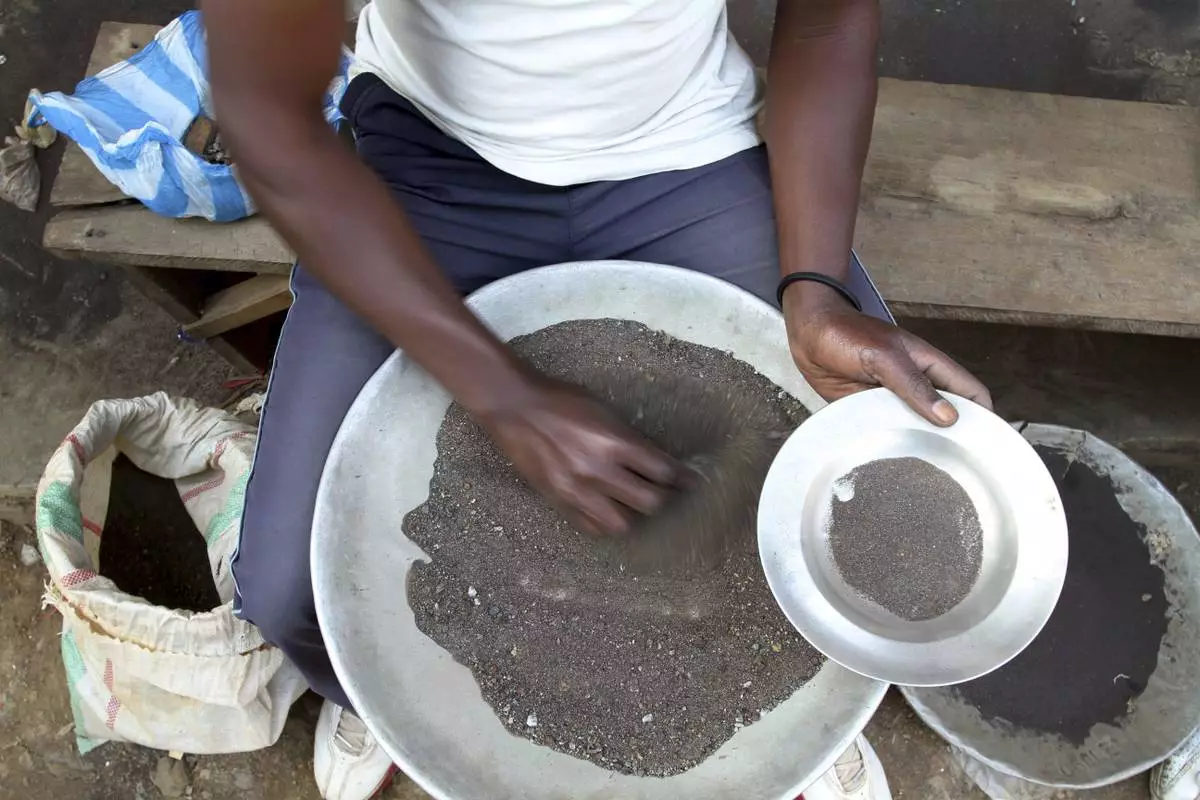
FILE - A Congolese miner sifts through ground rocks to separate out the cassiterite, the main ore that's processed into tin, in the town of Nyabibwe, eastern Congo, Aug. 16, 2012. Congo’s government is questioning Apple about the tech company’s knowledge of “blood minerals” from a conflict zone in the African country that could be smuggled into supply chains. A group of international lawyers representing Congo said Thursday, April 25, 2024, that it sent letters to Apple’s CEO Tim Cook and its French subsidiary this week raising concerns about human rights violations involving the minerals extracted from mines in the country’s war-torn east. (AP Photo/Marc Hofer, File)






